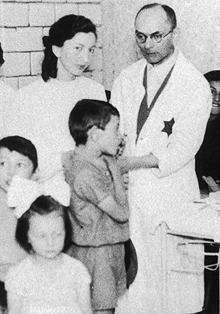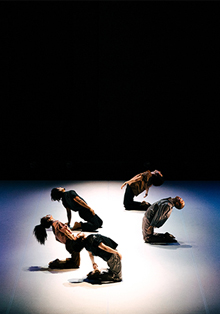On the occasion of the 80th anniversary of the Warsaw ghetto uprising, the Centro Sefarad-Israel is organising the round table discussion Health and medicine in the Jewish ghettos of occupied Poland, with the participation of Rosa Ríos Cortes and Esteban González López, lecturers on the subject The Holocaust, a reflection from the perspective of Medicine at the Universidad Autónoma de Madrid.
On 1 September 1939, the Nazi invasion of Poland began, marking the start of the Second World War. From 1940 onwards, the Nazi forces concentrated the Jewish population in ghettos where living conditions were terrible, often without running water or sewage systems.
Some were forced to work in factories producing materials for the Nazi army. The gruelling working hours, combined with hunger, cold and overcrowding, facilitated the emergence and spread of epidemics of typhus and other diseases. Despite the lack of means, Jewish doctors continued to treat the sick in makeshift clinics and hospitals. They faced complicated ethical dilemmas in deciding how to distribute scarce medicines. Their example of resistance and heroism was able to create an underground medical school in the Warsaw ghetto. They also conducted pioneering research into the consequences of hunger on the human organism. Free admission with prior confirmation at this link.







